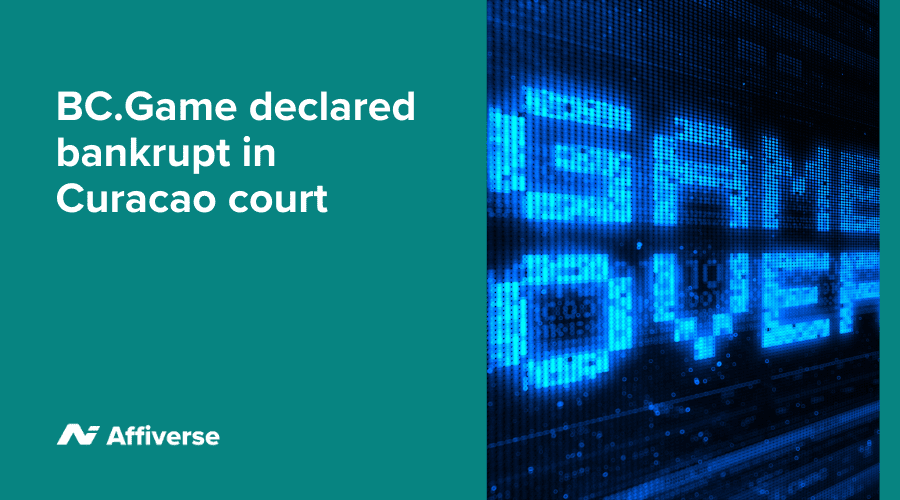Leicester City Football Club finds itself involved in a PR controversy as its front-of-shirt sponsor, crypto casino and betting platform BC.Game, faces bankruptcy allegations related to its parent companies in Curacao.
It’s a significant blow not just for Leicester City, but also for many in the iGaming world —potentially including players.
A brief overview of the BC.Game dilemma
In July 2024, Leicester City signed a two-year, £30 million sponsorship deal with BC.Game. At the time, many praised the cryptocurrency-focused gambling site for its state-of-the-art blockchain technology and its player-focused platform. However, recent reports from Curacao —where BC.Game is based— reveal Small House B.V. and Blockdance B.V., BC.Game’s owners, have been recently declared bankrupt.
According to court transcripts, it’s alleged the site failed to pay winnings exceeding $2 million, breaches of license terms —and a potential license revocation by the newly-reformed Curacao Gaming Control Board (GCB).
While BC.Game has stated it’s appealing the decision, there have, allegedly, been inconsistencies in evidence and even accusations of legal malpractice — further complicating the situation. Leicester City has revealed that BC.Game assured them the case would not affect their financial commitments, but this seems unlikely, if allegations prove true.
A spokesperson for the club said:
“We have been and continue to be in regular discussions with BC.Game with regard to an active legal case in Curaçao…BC.Game have assured us that they remain fully committed to meeting their ongoing contractual and financial obligations.”
History repeating itself?
This is not the first time gambling-related sponsorship disputes have arisen. In 2023, for example, Italian football clubs AS Roma and Inter Milan dropped blockchain sponsor DigitalBits due to unpaid fees. Cryptocurrency-based companies are still very much in their infancy—and regulation of crypto technology is, to many, far behind where it really needs to be.
What’s shocking about the BC.Game case, is the size of the company involved. For a number of years, BC.Game has dominated the crypto gambling industry, quickly becoming one of the largest sites at play in the market.
For affiliates, it shows just how important due diligence is, especially when dealing with operators in grey-area markets like Curacao. While the Caribbean nation has recently reformed their gambling regulatory framework (after decades of corruption, poor regulatory oversight, and a near-complete lack of enforcement action), it shows gambling businesses based in Curacao could still be operating in under-the-table ways.
What happens next — and how affiliates could be impacted
While the BC.Game case appears to be ongoing, some have already claimed the blowback from this news could have a significant impact on affiliates. For example, some of the issues affiliates could face include.
- Reputational Damage: Affiliates tied to BC.Game, and those who aggressively prompted them, could face player backlash over unpaid winnings and regulatory violations.
- Loss Of Revenue: It goes without saying that if BC.Game’s license is revoked, or its bankruptcy proceeds, affiliates will likely lose expected earnings —both those owed, historical, and future expected commissions.
While there is an argument that the issues with BC.Game were not matter affiliates would realistically be expected to know, it also demonstrates the importance of running due-diligence checks and only partnering with trusted, transparent brands. Plus, as regulators increasingly tighten their grip on crypto-based gambling platforms, affiliates must also remain informed, vigilant —and willing to adapt.
______________________________________________________________________________________________________________________________________________________________________
This new article was first published on The Mirror




















